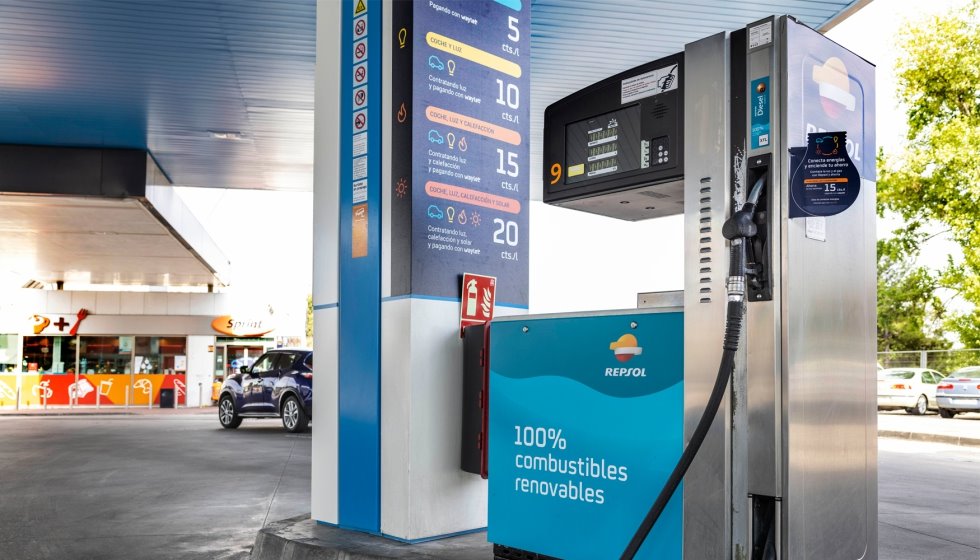
Repsol has launched the supply of 100% renewable diesel at three service stations in Madrid, Barcelona and Lisbon (Portugal). With this initiative, it becomes the first Spanish company to sell 100% renewable fuel at its service stations in the Iberian Peninsula.
In this way, the multi-energy company maintains a strong commitment to renewable fuels, which are one of the main levers of Repsol's strategy to accelerate the decarbonization of transport and achieve its goal of becoming a net zero emissions company by 2050.
The main advantage of using biofuels is that they can be used in existing vehicles without the need for modifications to engines or existing distribution and refuelling infrastructure.
The multi-energy company has an expansion plan to cover the main cities and transport corridors of the Iberian Peninsula. Finally, it will have 50 service stations that will dispense 100% renewable fuel by the end of this year.
The company assured that "Repsol, within its multi-energy strategy, thus makes available to its customers a new 100% renewable product, which adds to its wide range of electric mobility, shared mobility (Wible), AutoGas, CNG / LNG and Neotech fuels".
Net zero emission fuels
To decarbonize mobility, Repsol is committed to an energy model that combines electrification, renewable fuels and hydrogen. "All energy solutions must be taken into account to guarantee supply and reduce emissions as quickly and efficiently as possible," Repsol sources said.
Renewable fuels are those that are produced from renewable raw materials. Specifically, advanced biofuels are manufactured from organic waste such as used vegetable oils, animal fats and agricultural and forestry residues that are not intended for food. In addition, synthetic fuels are obtained from CO2 captured and renewable hydrogen.
Advanced biofuels are manufactured from organic waste.
Repsol has been manufacturing and marketing biofuels for more than two decades, and since 2019, it has incorporated organic waste in its manufacture. Renewable fuels are already present in all service stations in Spain in a content of more than 10% of the fuels sold, in accordance with current legislation.
"In 2025, Repsol will have a production capacity of 1.3 million tons of renewable fuels and will reach more than two million tons in 2030, which will position it as a leading company in the production of these fuels in Spain and Europe," the company anticipated.
In turn, this year, Repsol will start up in Cartagena (Region of Murcia) the first plant in the Iberian Peninsula dedicated exclusively to the production of advanced biofuels from waste. These facilities will produce 250,000 tons annually, avoiding the emission of 900,000 tons of CO.2.
The company will also build a synthetic fuels demonstration plant in Bilbao, using technology that Repsol is developing together with Aramco. This facility has an initial investment of more than 100 million euros and will be operational in 2025, according to data from the multi-energy company.